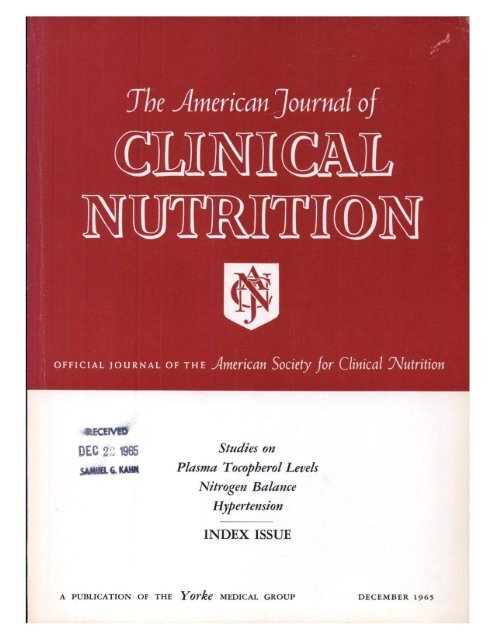Planetary Health Diet Index in relation to mortality in a prospective cohort study of United States Black females
IF 6.5
1区 医学
Q1 NUTRITION & DIETETICS
引用次数: 0
Abstract
Background
To improve both human health and the health of our planet, the EAT-Lancet Commission proposed the planetary health diet (PHD).
Objectives
We aimed to evaluate associations of PHD with all-cause, cardiovascular disease (CVD), and cancer-specific mortality among United States Black females.
Methods
The Black Women’s Health Study is a prospective study of self-identified United States Black females. In 2001, 33,824 participants free of cancer and CVD completed a validated food frequency questionnaire. PHD Index (PHDI) was calculated based on reported consumption of 15 food groups, such as whole grains, nonstarchy vegetables, legumes, soy foods, added fat and trans fat, and red/processed meats. Deaths were identified through linkage to the National Death Index. Cox proportional hazards regression, stratified by age and adjusted for smoking status, body mass index, and other CVD risk factors, was used to calculate hazard ratios (HRs) for quintiles of PHDI in relation to all-cause, CVD-, and cancer-specific mortality.
Results
During 18 years of follow-up, we identified 3537 deaths, including 779 from CVD and 1625 from cancer. Females in the quintile representing the highest adherence to PHD were estimated to have an 18% reduction in risk of all-cause mortality [HR = 0.82, 95% confidence interval (CI): 0.71, 0.94] and 26% reduction in CVD-specific mortality (HR = 0.74, 95% CI: 0.55, 0.98), compared with those in the lowest quintile, with similar reductions observed for quintiles 2, 3, and 4. Among individuals under age 55, there was a significant trend of lower CVD mortality risk with a higher level of adherence to PHD (Ptrend = 0.004), and the HR for the highest compared with the lowest quintile was 0.43 (95% CI: 0.21, 0.87). PHDI was not associated with cancer-specific mortality.
Conclusions
Adherence to a diet that has been shown to benefit the planet was associated with a lower risk of mortality among Black females, primarily driven by a reduction in CVD-specific mortality risk.
求助全文
约1分钟内获得全文
求助全文
来源期刊
CiteScore
12.40
自引率
4.20%
发文量
332
审稿时长
38 days
期刊介绍:
American Journal of Clinical Nutrition is recognized as the most highly rated peer-reviewed, primary research journal in nutrition and dietetics.It focuses on publishing the latest research on various topics in nutrition, including but not limited to obesity, vitamins and minerals, nutrition and disease, and energy metabolism.
Purpose:
The purpose of AJCN is to:
Publish original research studies relevant to human and clinical nutrition.
Consider well-controlled clinical studies describing scientific mechanisms, efficacy, and safety of dietary interventions in the context of disease prevention or health benefits.
Encourage public health and epidemiologic studies relevant to human nutrition.
Promote innovative investigations of nutritional questions employing epigenetic, genomic, proteomic, and metabolomic approaches.
Include solicited editorials, book reviews, solicited or unsolicited review articles, invited controversy position papers, and letters to the Editor related to prior AJCN articles.
Peer Review Process:
All submitted material with scientific content undergoes peer review by the Editors or their designees before acceptance for publication.

 求助内容:
求助内容: 应助结果提醒方式:
应助结果提醒方式:


